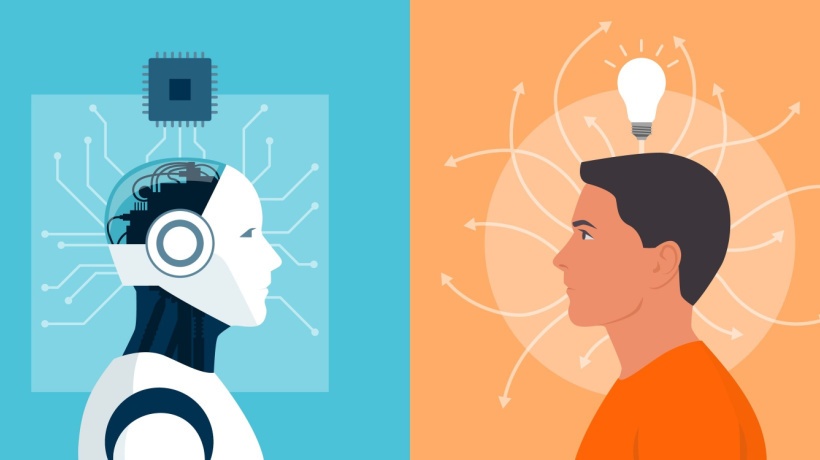The Power of Artificial Intelligence: Shaping the Future
June 15, 2023

At AIU, the pursuit of knowledge converges with the limitless potential of artificial intelligence. Our university urges students to unravel the mysteries of AI, unlocking groundbreaking innovations and shaping the future. Read on as we explore the various ways AI is just beginning to be used to enhance our lives, from residential use to medical applications.
Artificial Intelligence (AI) has emerged as a transformative technology, revolutionizing various industries, and impacting our daily lives in profound ways. From autonomous vehicles and virtual assistants to personalized recommendations and advanced healthcare systems, AI has become a driving force behind innovation and progress. In this blog, we will explore the exciting developments in AI, its potential applications, and the implications it holds for the future. As a leading university, we are at the forefront of AI research and education, equipping our students with the skills and knowledge to navigate this rapidly evolving landscape. At its core, AI refers to the simulation of human intelligence in machines, enabling them to learn, reason, and make decisions. Machine Learning (ML) and Deep Learning (DL) are two prominent branches of AI that have gained significant traction in recent years. ML focuses on training algorithms to analyze data and make predictions, while DL involves the creation of artificial neural networks to mimic human brain functioning. These technologies, combined with vast amounts of data and computational power, have propelled AI to new heights.
AI has permeated various industries, transforming the way we work, communicate, and interact with our environment. In healthcare, AI-powered systems are aiding in the diagnosis of diseases, analyzing medical images, and improving patient care through personalized treatment plans. AI algorithms can quickly process large amounts of data, identifying patterns and anomalies that human experts might miss. This helps medical professionals make more accurate diagnoses and develop targeted treatment plans. Additionally, AI is playing a crucial role in drug discovery and development, accelerating the search for new medications and treatments.
Smart homes and virtual assistants like Amazon's Alexa and Google Assistant utilize AI to provide seamless automation and voice-controlled experiences. These systems can control lighting, temperature, and security features, making our homes more convenient and energy efficient. Virtual assistants can also perform tasks such as setting reminders, playing music, and answering questions, making them valuable companions in our daily lives.
Moreover, AI is revolutionizing transportation with the development of self-driving cars. These vehicles use AI algorithms and sensors to navigate roads, making driving safer and more efficient. Self-driving cars have the potential to reduce traffic congestion, lower fuel consumption, and decrease the number of accidents caused by human error. AI is also being used to optimize traffic flow and manage transportation networks, further improving efficiency and reducing travel times.
In finance, AI algorithms are being used to detect fraudulent activities and make real-time trading decisions. Machine Learning models can analyze vast amounts of financial data and identify patterns associated with fraudulent transactions, helping financial institutions protect against fraud and minimize losses. AI-powered trading systems can analyze market trends, news, and other relevant factors to make informed investment decisions, improving the accuracy and speed of trading operations.
AI-powered recommendation systems, such as those used by Netflix and Spotify, enhance user experiences by suggesting personalized content based on individual preferences. These systems use ML algorithms to analyze user data, including viewing or listening history, to generate recommendations tailored to each user's tastes. This not only improves user satisfaction but also helps content providers increase engagement and retention.
While AI offers incredible potential, it also presents unique challenges and ethical considerations. One concern is the impact of AI on employment, as automation could potentially replace certain jobs. However, history has shown that technological advancements tend to create new opportunities and job roles that were previously unimaginable. By preparing our workforce with the necessary skills and promoting continuous learning, we can adapt to the changing job landscape and leverage AI to create new employment opportunities. Another critical aspect is the ethical use of AI. Ensuring transparency, accountability, and fairness in AI algorithms is vital to avoid perpetuating biases or discriminations. Developers, policymakers, and researchers must collaborate in establishing guidelines and regulations that address potential risks and foster responsible AI development. Ethical considerations should be embedded into the design and implementation of AI.
Furthermore, as AI continues to advance, it is essential to prioritize the ethical implications of its applications. Issues such as privacy, data security, and algorithmic biases must be addressed to ensure that AI benefits all individuals and communities equitably. As a leading university, we are actively engaged in research and education that explores the ethical dimensions of AI. Our programs emphasize the importance of responsible AI development, promoting values such as transparency, accountability, and inclusivity. By integrating ethics into AI education, we aim to cultivate a generation of AI professionals who are not only skilled in technical aspects but also equipped with a strong ethical foundation to guide their decision-making processes.
Artificial Intelligence has become an indispensable tool for solving complex problems and improving efficiency across various industries. Its potential is boundless, and as we continue to explore new applications, AI will undoubtedly shape the future in ways we cannot yet imagine. As a prominent university, we are dedicated to equipping our students with the knowledge and skills needed to harness the power of AI responsibly. By combining technological advancements with ethical considerations, we can build a future where AI enhances human capabilities, promotes sustainable development, and drives positive change in society.

